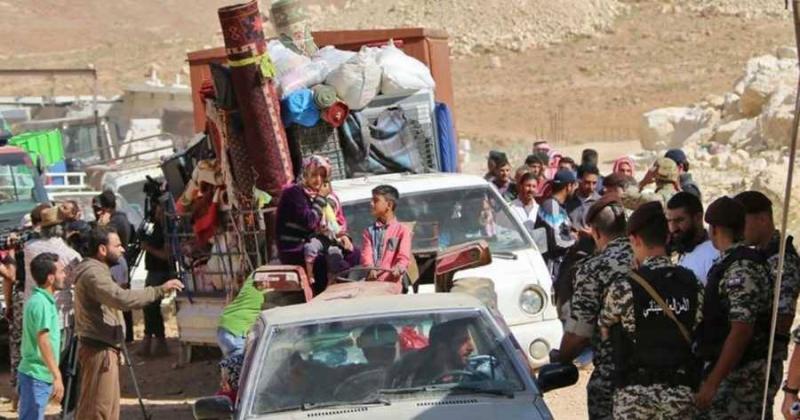The Lebanese government has developed a roadmap to address the Syrian refugee crisis, which includes classifying Syrians residing in the country into displaced and non-displaced individuals. The plan aims to organize the presence of displaced persons and workers in accordance with Lebanese residency and labor laws, as well as to deport displaced persons who entered the country illegally, according to "Asharq Al-Awsat." Lebanese authorities state that there are over two million Syrians residing in the country, mostly displaced, with nearly one and a half million displaced persons, divided into registered and unregistered individuals on the lists of the UN High Commissioner for Refugees. Approximately 800,000 were registered before 2015.
Caretaker Prime Minister Najib Mikati chaired a meeting of the ministerial committee to follow up on the implementation of the national social protection strategy action plan at the Grand Serail on Tuesday, discussing the issue of Syrian displaced persons. Following the meeting, Minister of Social Affairs Hector Hajjar stated that he presented the roadmap requested at the last meeting, and it was decided to convene a military council meeting to link the points he laid out with a timeline for addressing both old and new realities regarding displaced persons and other issues.
He indicated that the main points of the plan include the necessity for the Lebanese state to conduct a comprehensive survey of all Syrians in the country to determine who qualifies as displaced and who does not. It also emphasizes securing funding approval to address the situations of actual displaced persons relative to their numbers and needs. The plan stipulates that all relevant Lebanese laws should apply to non-displaced Syrians without linking them to the UN agency or granting them any refugee rights, in addition to the need to dismantle all tents and residential clusters for those who do not qualify as displaced.
One pathway proposed is either resettlement in a third country or returning them to their homeland after coordination with the Syrian government. There is also a call for international community assistance to enhance security and prevent violations along land and maritime borders.
Lebanese officials view the Syrian displacement in Lebanon primarily as an economic issue rather than a security one, emphasizing the toll on infrastructure and state resources. Syrians have also been beneficiaries of funds allocated by the Lebanese state to support essential goods such as fuel, bread, and foodstuffs between 2020 and 2022.
In related news concerning international support for both Lebanese citizens and displaced persons, Health Minister Firas Abyad noted after Mikati’s meeting with Dr. Hanan Balkhy, the Director of the Eastern Mediterranean Region at the World Health Organization, that the visit was primarily aimed at assessing the healthcare system in Lebanon. This system is facing substantial burdens due to recurring crises and the presence of displaced persons, including those from Syria and others displaced due to Israeli aggression in the southern region. This visit provided an opportunity for Dr. Balkhy to observe the situation and follow up on the implementation of the national social protection strategy action plan, particularly through close cooperation between the Ministry of Health and the World Health Organization to meet the needs of both Lebanese citizens and displaced individuals, as stated by "Asharq Al-Awsat."




